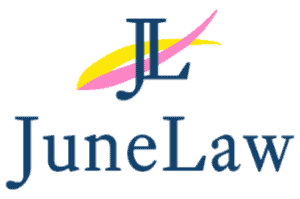

My Insurance Claim Has Been Denied, What Do I Do?
The best advice we can give you is to call us. No two insurance claims are the same, and we can best help you if we learn more about your specific situation. The sooner you call us, the more we can help you. Here are a few things you can do that may help:
- If you have not received a written explanation of the decision to deny your benefits, send a letter requesting one. We frequently hear from people who have been told of their benefit denial over the phone, and you deserve a clear written explanation of the reasons for denying your benefits. Your letter should also request a copy of your claim file and ask what steps you should follow to appeal the denial.
- Don’t throw any documents away. Even if you think they are unimportant, they may help me to understand your case.
- Don’t wait. Many claim denials must be appealed within a specified timeframe. You should ask about any deadlines you face and act promptly.
- Remember that you are not alone. Many people feel they are powerless to fight with an insurance company, and the best thing you can do is to get help.
How Do I Find Out What My Benefits Are?
If you get your benefits through your employer, you should contact the benefits office or human resources department of your company to fully understand your benefits package. Surprisingly, many people don’t even know what benefits they have. In order to deal with a crisis, and it is important to ask about this. Similarly, your insurance company should send you a copy of your policy and “declarations” or a summary of your benefits. You are entitled to request this if you do not have it already.
What is ERISA, and How Does it Affect My Dispute?
ERISA is the acronym for the Employee Retirement Income Security Act of 1974, a massive federal law that governs most employee benefits furnished through private employers. If you get your insurance or benefits through your or a family member’s employment, ERISA probably governs your claim. However, if you work for a government entity of any kind, then ERISA probably does not apply to you.
Why Do I Need a Lawyer with Federal Court Experience?
Lawsuits to resolve ERISA benefit denials must be filed in federal court. The litigation process for these claims is very specialized.
What is a Summary Plan Description?
Under ERISA, employers are required to administer benefits according to a written plan, which is typically very legalistic and difficult for laypeople to understand. Consequently, ERISA requires employers to furnish employees with a “summary plan description” of their benefits. The summary plan description is supposed to be written in plain language and explain your benefits and any claim procedures in a manner that you can understand. If you don’t have a summary plan description for your employer-provided benefits, you should request it.
Have You Dealt With Many Different Insurance Companies?
Yes, we have dealt with a great many different insurance companies, including:
- AAA
- Aetna
- AIG
- Allstate
- Amica
- Anthem
- Auto Club
- Auto-Owners
- Blue Cross Blue Shield
- Bristol West
- Broadspire
- Cigna
- Cincinnati
- Citizens
- CNA
- Continental
- Dairyland
- Empire
- Encompass
- John Hancock
- Liberty Life
- Liberty Mutual
- Life Insurance Company of North America (LINA)
- Lincoln National
- Madison National
- Massachusetts Mutual
- MEEMIC
- MemberSelect
- Metropolitan Life Insurance Company (MetLife)
- MIC General
- Mutual of Omaha/United of Omaha
- National Union Fire Insurance of Pittsburgh
- Nationwide
- New York Life
- Northwestern Mutual
- Paul Revere
- Esurance
- Everest
- Farm Bureau
- Farmers
- Foremost
- Frankenmuth Mutual
- Fremont
- GEICO
- Grange
- Guardian
- Hanover
- Hartford
- Hastings Mutual
- Highmark
- Home-Owners
- Horace Mann
- Humana
- ING
- Jefferson Pilot
- Pioneer State
- Principal
- Progressive
- Provident Life
- Prudential
- QBE
- Reliance Standard Life
- Safeco
- Sedgwick
- Standard
- State Farm
- Sun Life
- Titan
- Travelers
- UniCare
- United Health Care
- Unum
- USAA
- Wolverine Mutual
- Zurich American
